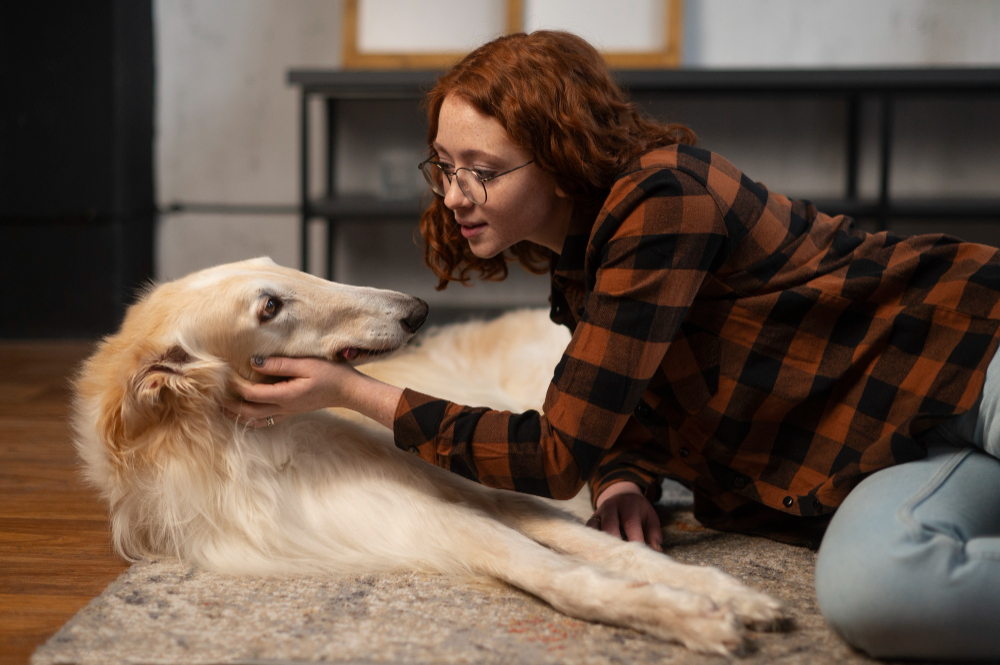When At-Home Care Becomes Essential: Supporting Dogs with Mobility Issues

When At-Home Care Becomes Essential: Supporting Dogs with Mobility Issues

Watching a beloved dog struggle with mobility can be heartbreaking for any pet owner. Whether your companion is a gentle giant dealing with joint issues or a smaller dog facing age-related challenges, mobility problems significantly impact quality of life. While traditional veterinary visits can be stressful for dogs with limited movement, at-home veterinary care offers a compassionate alternative that prioritizes comfort and dignity.
At-home veterinary services provide specialized care tailored to dogs who find it difficult or painful to travel. This approach eliminates the stress of car rides, waiting rooms, and unfamiliar environments—factors that can be particularly overwhelming for dogs already dealing with physical limitations. For pet owners in Jupiter, FL, understanding when and how at-home care can benefit their furry family members is crucial for making informed decisions about their pet's wellbeing.
Understanding Mobility Challenges in Dogs
Mobility issues in dogs stem from various causes, each presenting unique challenges for both pets and their families. Arthritis affects millions of dogs, causing joint pain and stiffness that worsens with age. Hip dysplasia, particularly common in larger breeds, can severely limit movement and cause significant discomfort. Spinal conditions, including intervertebral disc disease, can lead to partial or complete paralysis.
Large breed dogs face additional challenges due to their size and weight. Breeds like Great Danes, Saint Bernards, and German Shepherds are predisposed to conditions that affect mobility, including osteosarcoma (bone cancer) and degenerative myelopathy. These conditions often progress gradually, making it difficult for owners to recognize when their pet's quality of life has declined to a critical point.
The emotional toll on both pets and owners cannot be understated. Dogs with mobility issues may become withdrawn, lose interest in activities they once enjoyed, or show signs of depression. Owners often struggle with feelings of helplessness as they watch their once-active companions face daily challenges with simple tasks like standing, walking, or using the bathroom.
Benefits of At-Home Veterinary Care
At-home veterinary care transforms the healthcare experience for mobility-impaired dogs by bringing professional medical services directly to your doorstep. This approach eliminates the physical stress of transportation, which can be particularly challenging for large dogs or those experiencing significant pain.
The familiar environment of home provides emotional comfort that cannot be replicated in a clinical setting. Dogs remain in their safe space, surrounded by familiar scents, sounds, and family members. This reduces anxiety and allows for more accurate assessment of the pet's daily quality of life, as veterinarians can observe how the dog navigates their usual environment.
For large breed dogs, at-home care removes logistical barriers that make traditional veterinary visits nearly impossible. Lifting a 100-pound dog with mobility issues into a vehicle requires significant physical effort and can cause additional pain or injury. At-home services eliminate these concerns while ensuring your pet receives necessary medical attention.
The personalized attention available through at-home care allows veterinarians to spend more time with each patient, conducting thorough examinations and discussing treatment options in detail. This unhurried approach enables more comprehensive care and better communication between veterinarians and pet owners.
Recognizing When Your Dog Needs Specialized Care
Several warning signs indicate when a dog with mobility issues may benefit from at-home veterinary intervention. Difficulty rising from a lying position, reluctance to climb stairs, or visible pain when walking are obvious indicators. However, more subtle signs often require closer observation.
Changes in bathroom habits, such as accidents in the house or difficulty assuming normal elimination positions, may signal advancing mobility problems. Loss of appetite, increased sleeping, or withdrawal from family activities can indicate declining quality of life. Some dogs may become more clingy or anxious as their mobility decreases, while others may show aggression when touched in painful areas.
Large breed dogs may exhibit breed-specific signs that warrant immediate attention. Sudden onset limping, swelling in joints, or complete inability to bear weight on a limb requires prompt veterinary evaluation. Progressive weakness in the hindquarters, particularly in German Shepherds and similar breeds, may indicate degenerative myelopathy.
Regular quality of life assessments become crucial as mobility issues progress. Pet owners should honestly evaluate their dog's ability to perform basic functions, enjoy daily activities, and maintain dignity in their daily routine.
Treatment Options and Pain Management
At-home veterinary care offers numerous treatment options for dogs with mobility issues, ranging from conservative management to advanced interventions. Pain management forms the cornerstone of treatment, with veterinarians able to prescribe and monitor medications in the comfort of your home.
Non-steroidal anti-inflammatory drugs (NSAIDs) can provide significant relief for dogs with arthritis or joint pain. However, these medications require careful monitoring for side effects, making regular at-home check-ups essential. Alternative pain management options include gabapentin for nerve pain, tramadol for moderate to severe discomfort, and newer medications like Librela for osteoarthritis pain.
Physical therapy techniques can be demonstrated and implemented at home with professional guidance. Simple exercises, massage techniques, and environmental modifications can significantly improve a dog's comfort and mobility. Veterinarians can assess your home environment and suggest modifications like non-slip rugs, ramps, or orthopedic bedding.
For some dogs, supportive devices such as wheelchairs, harnesses, or braces can restore some independence and improve quality of life. At-home veterinarians can properly fit these devices and teach owners how to use them safely.
Making Difficult Decisions with Compassion
Sometimes, despite best efforts, mobility issues progress to a point where quality of life becomes severely compromised. At-home veterinary care provides a compassionate setting for making difficult end-of-life decisions. In-home euthanasia allows pets to pass peacefully in familiar surroundings, surrounded by loving family members.
This option is particularly valuable for large breed dogs, as it eliminates the stress and logistics of final veterinary visits. The process can be conducted with dignity and love, allowing families to say goodbye in their own time and way. Many at-home veterinary services also offer aftercare options, including cremation arrangements, removing additional stress during an already difficult time.
The decision-making process benefits from the personalized attention possible with at-home care. Veterinarians can spend extensive time discussing options, answering questions, and supporting families through this challenging period.
Finding Peace in Difficult Times
Caring for a dog with mobility issues requires patience, dedication, and often difficult decisions about quality of life. At-home veterinary care provides a compassionate solution that prioritizes your pet's comfort while supporting your family through challenging times.
The ability to provide professional veterinary care in a familiar, stress-free environment can significantly improve outcomes for dogs with mobility challenges. Whether managing chronic conditions, providing palliative care, or making end-of-life decisions, at-home services offer dignity and comfort when it matters most.
If you're considering in-home euthanasia in Jupiter, FL, contact Rover Veterinary Care today for more information about how their compassionate services can support you and your beloved companion during this difficult time.
